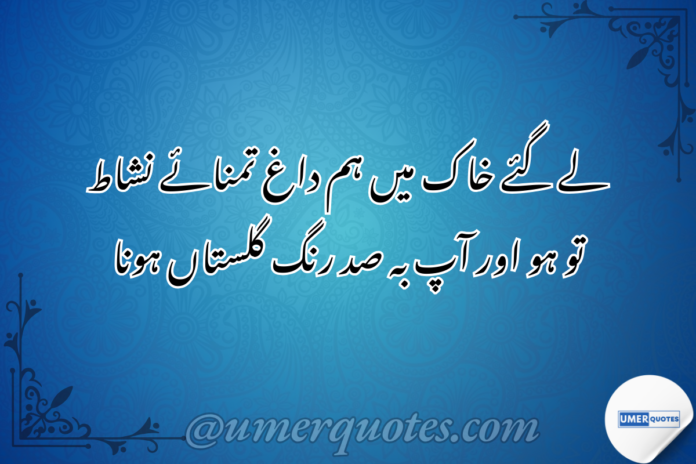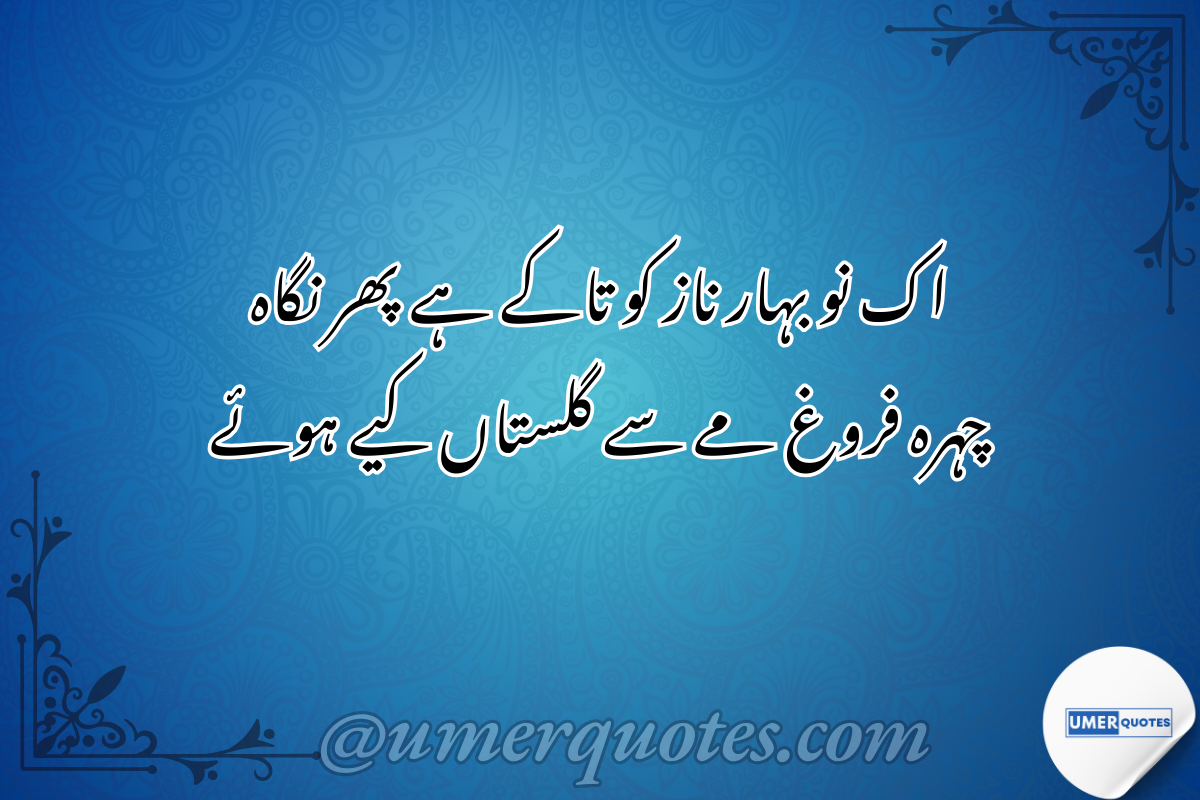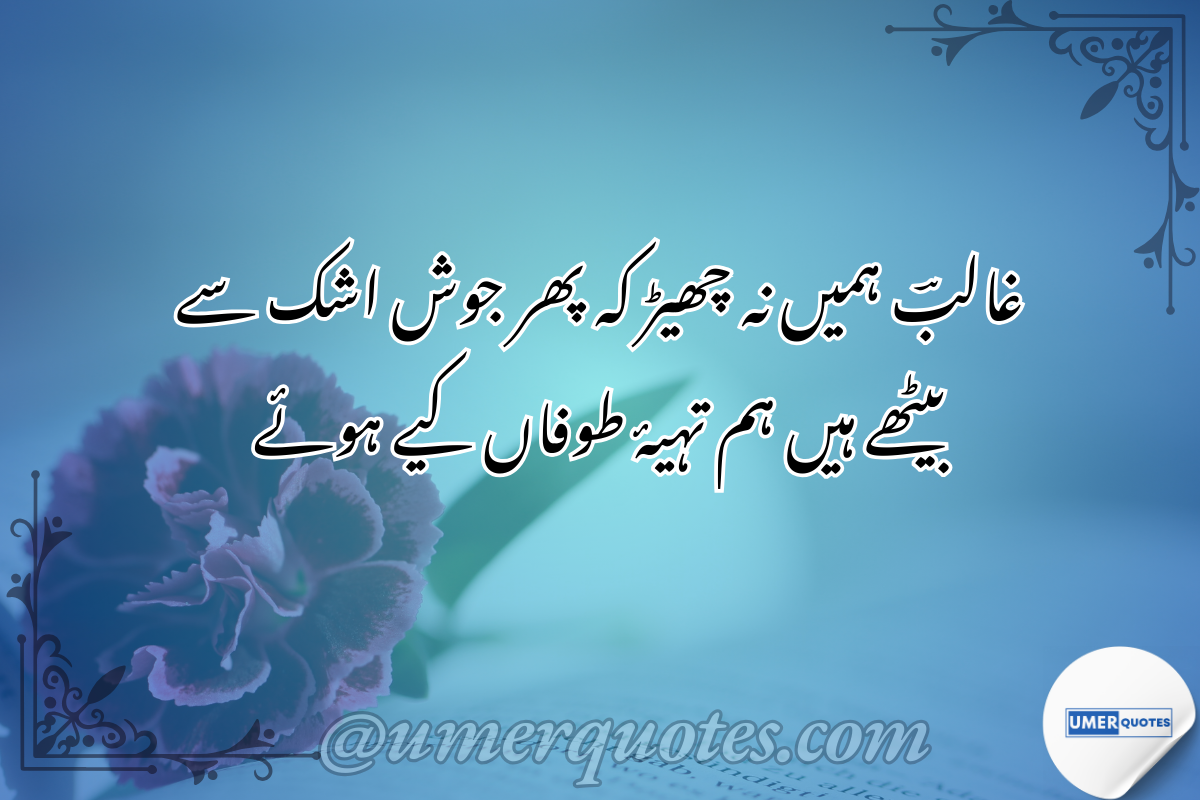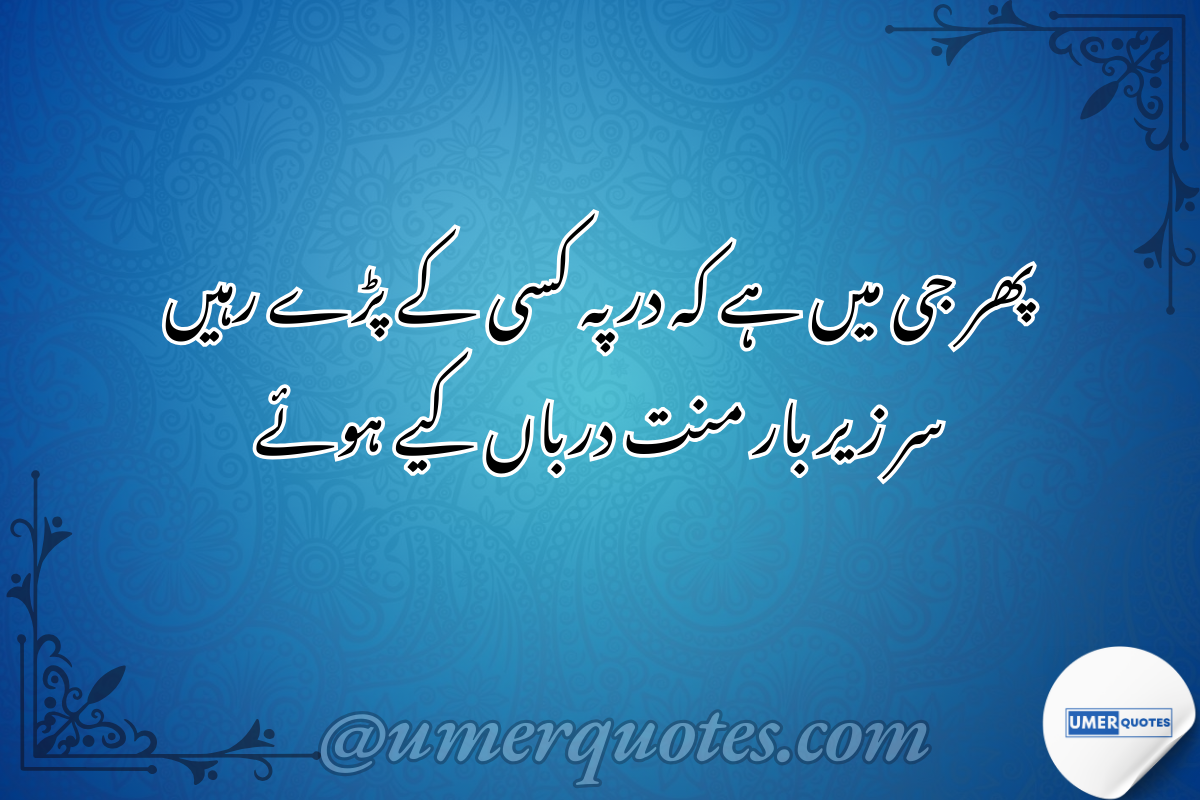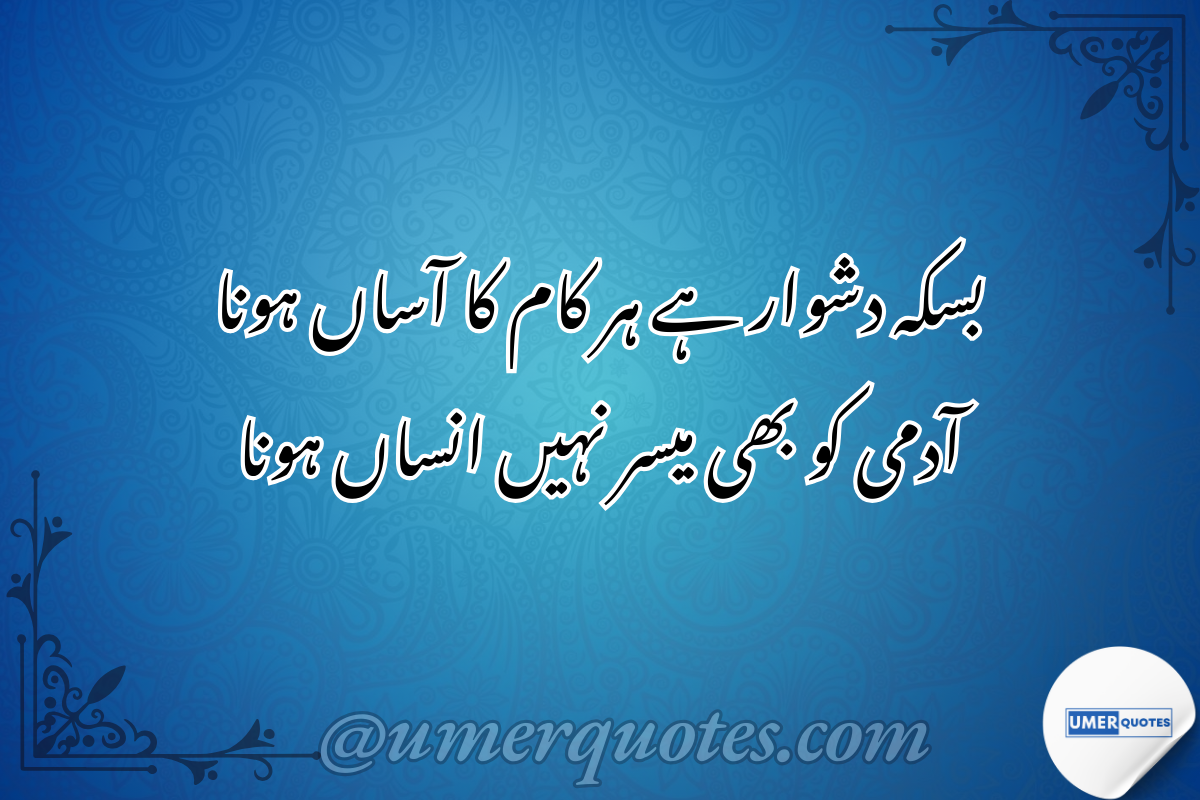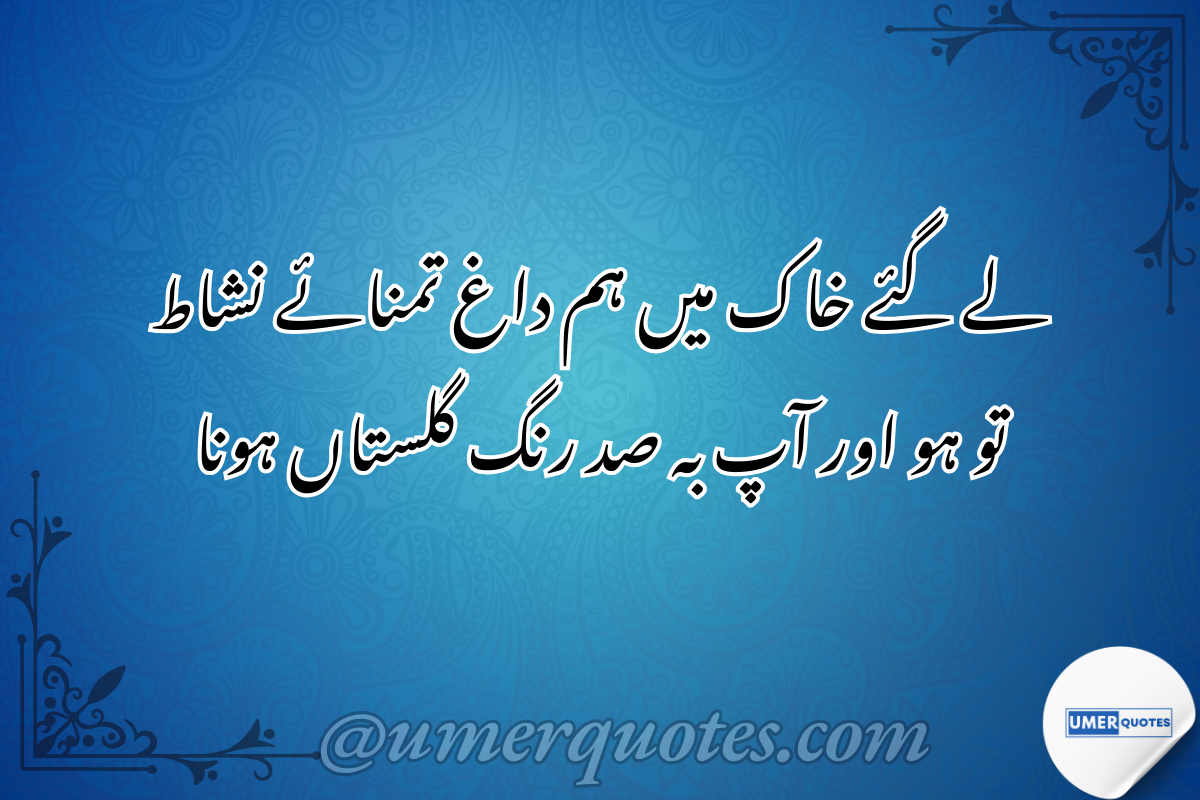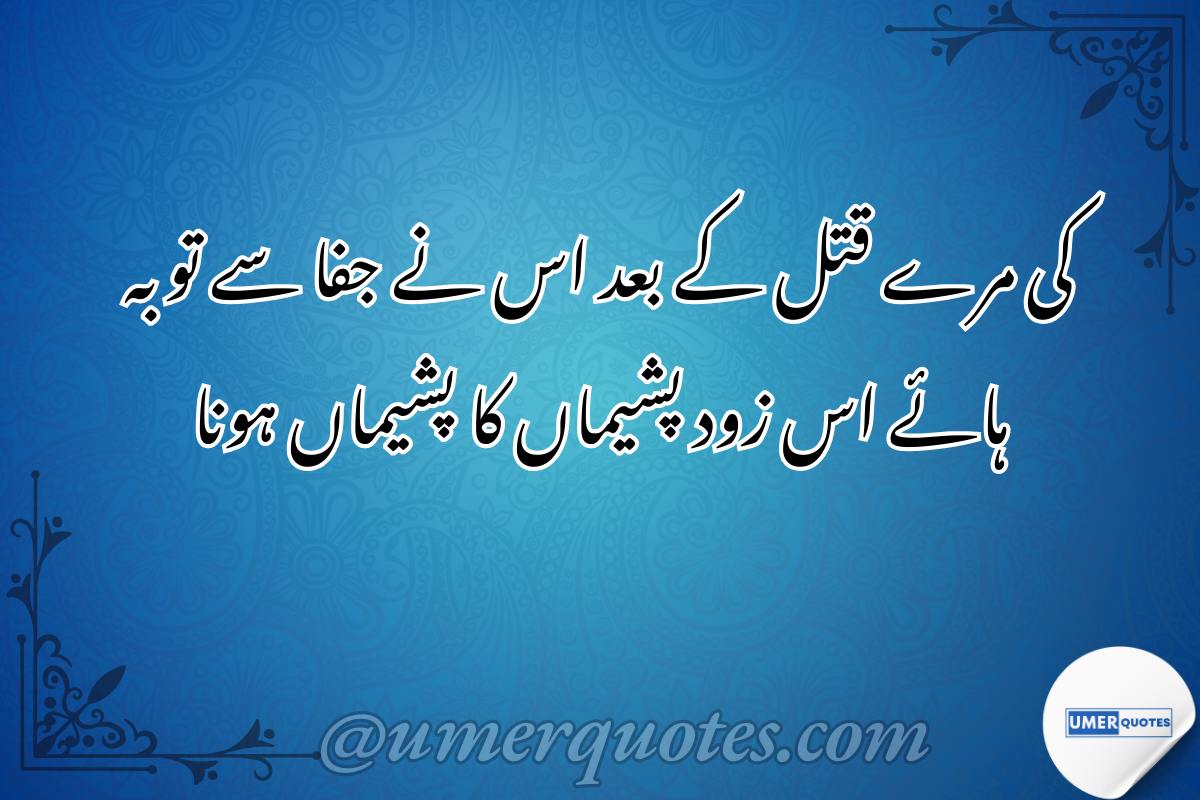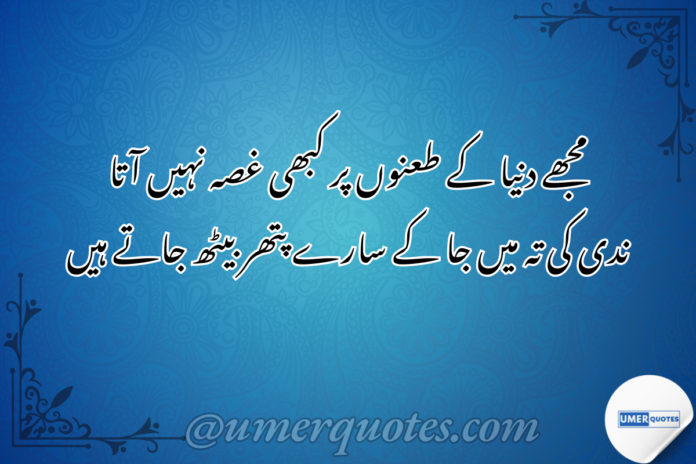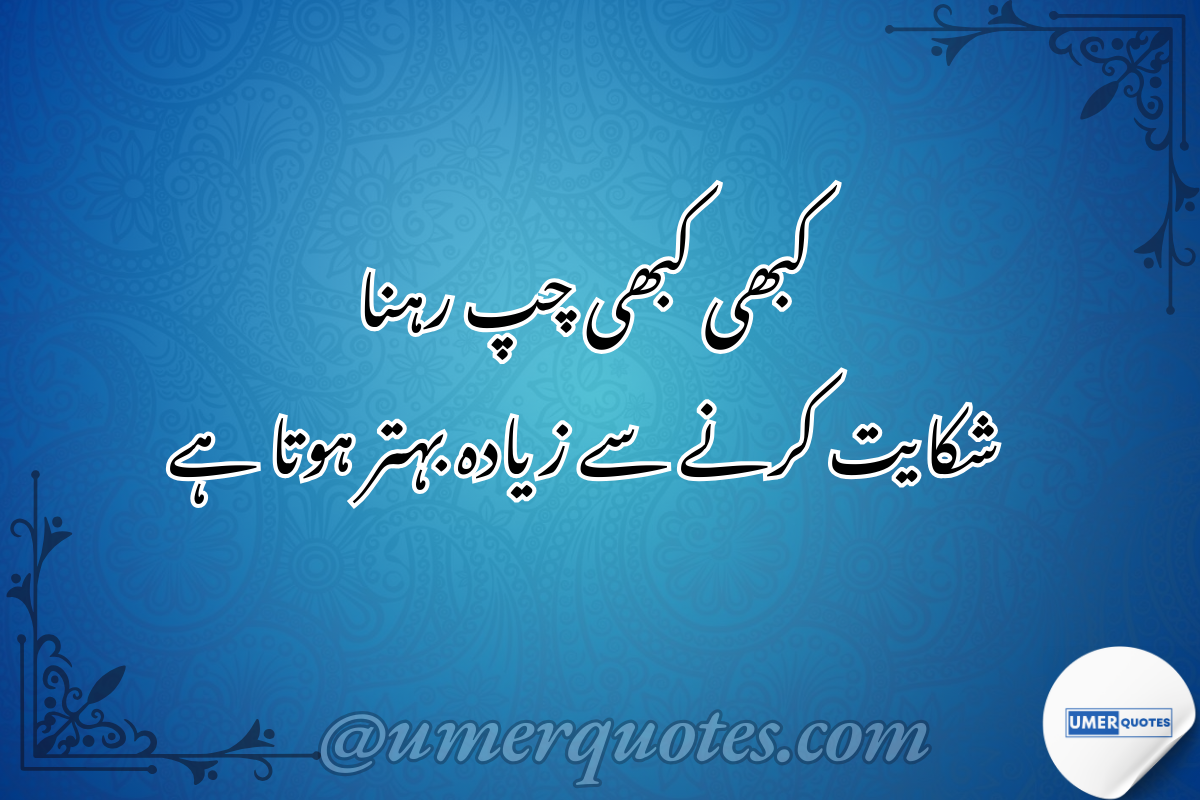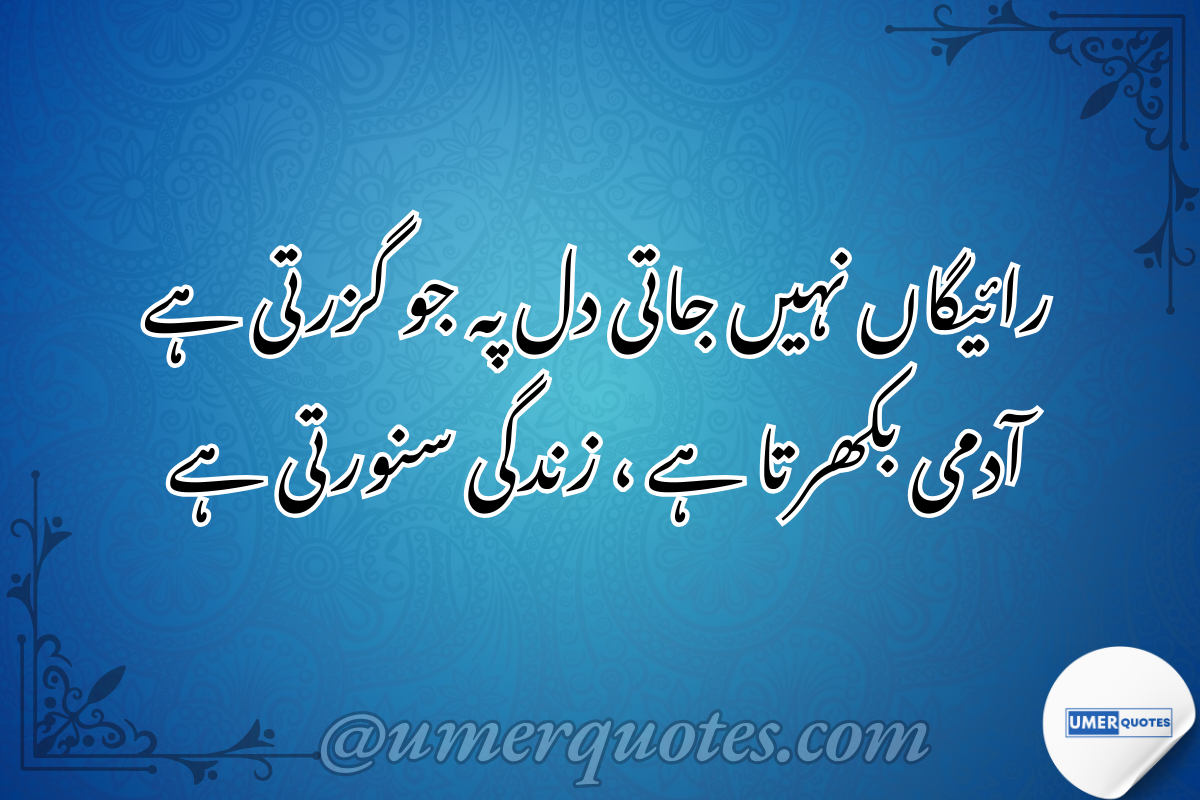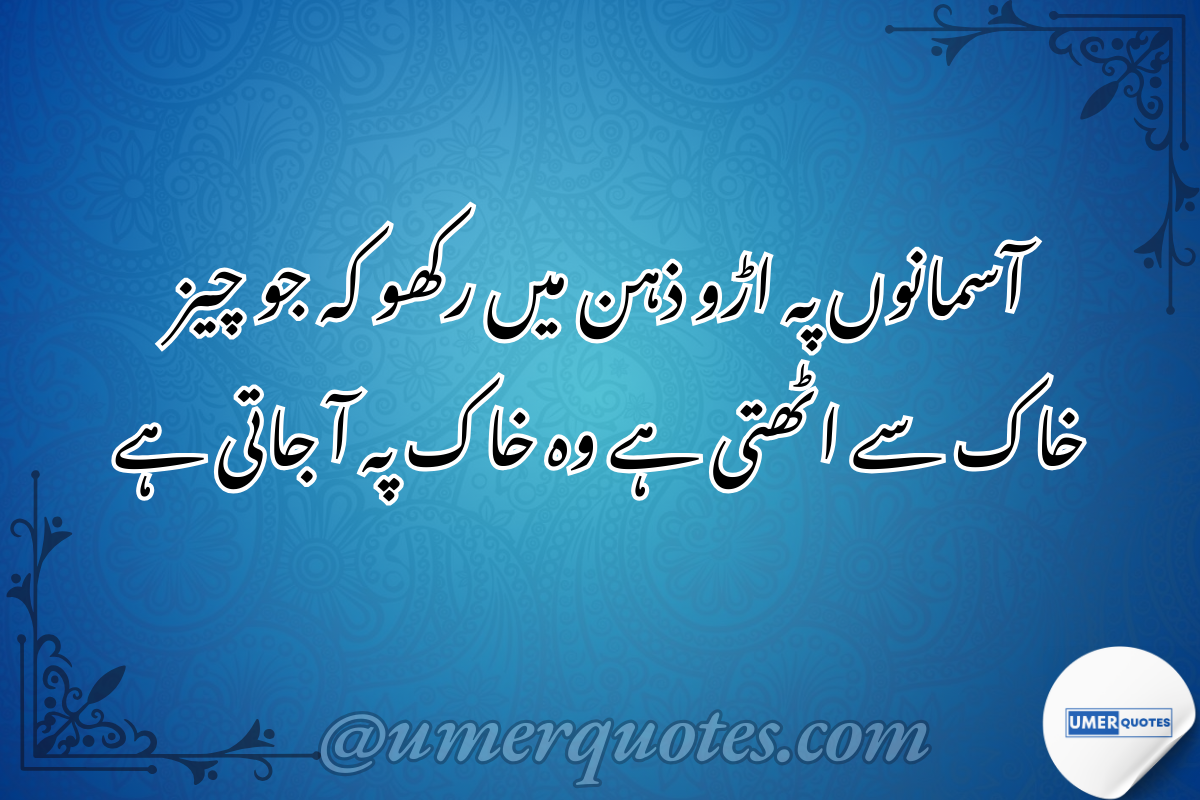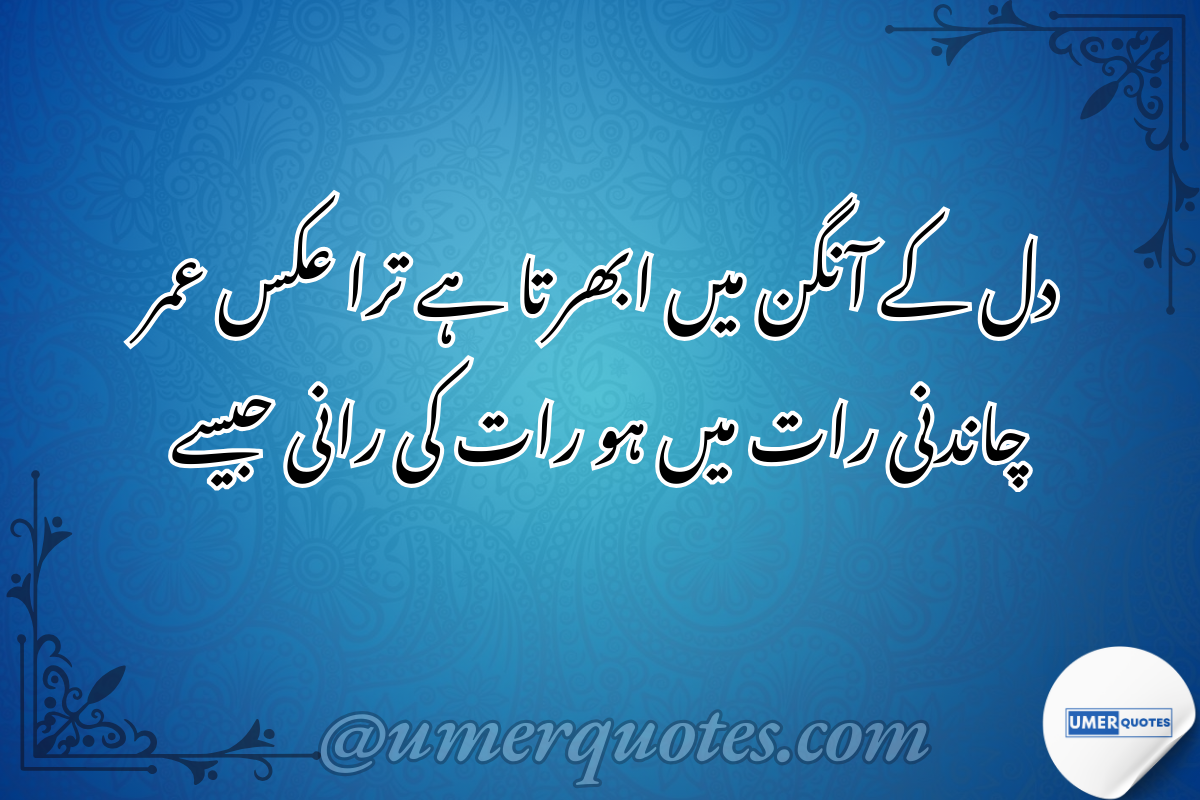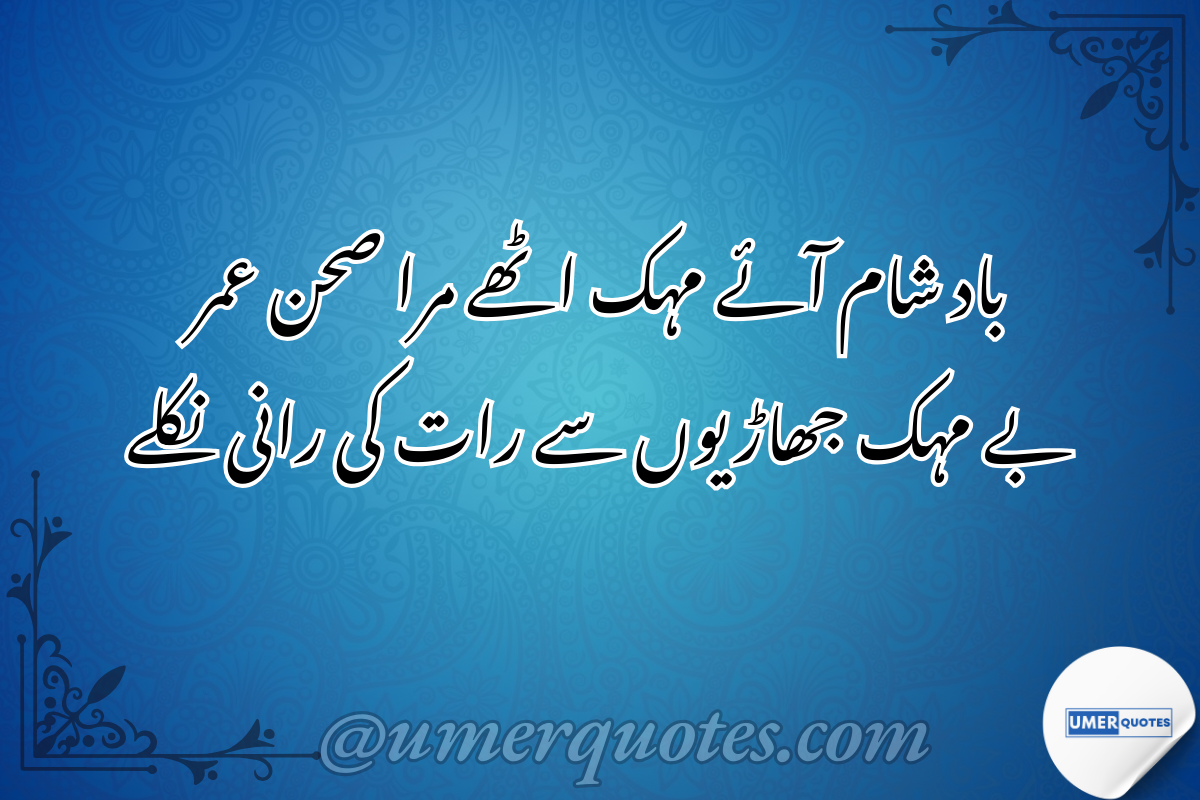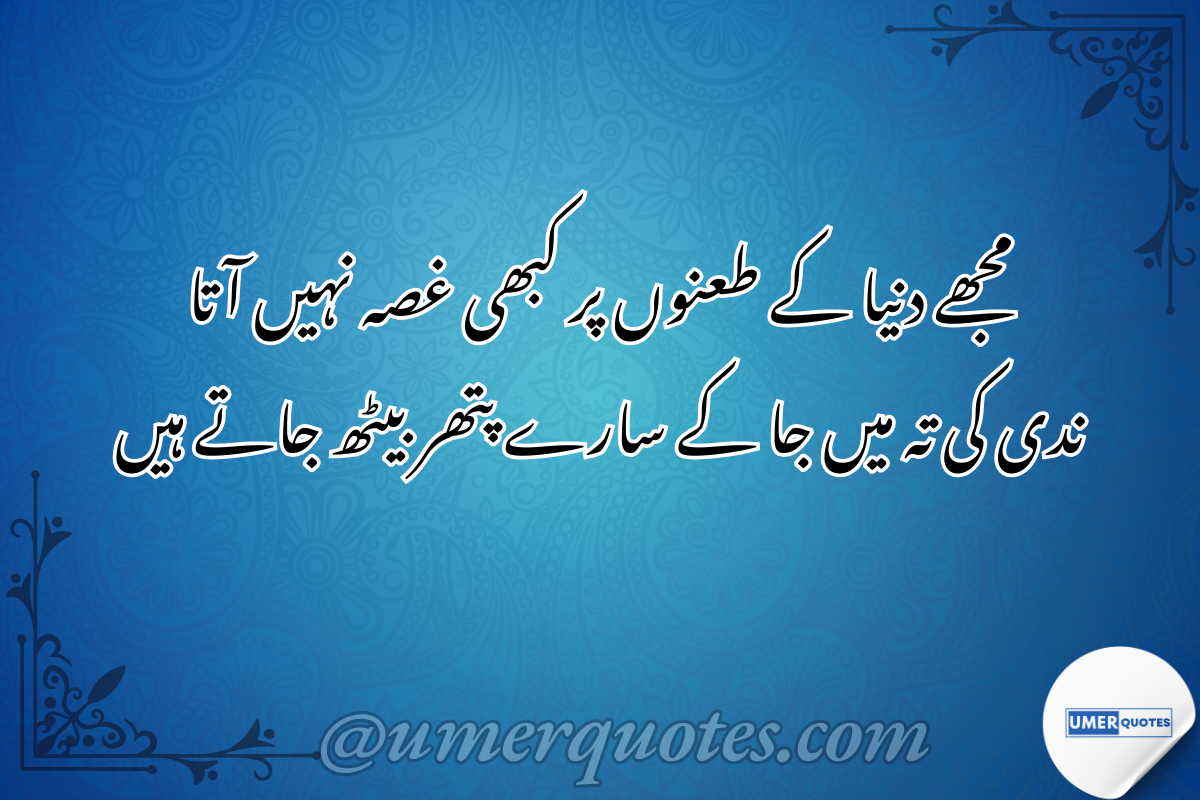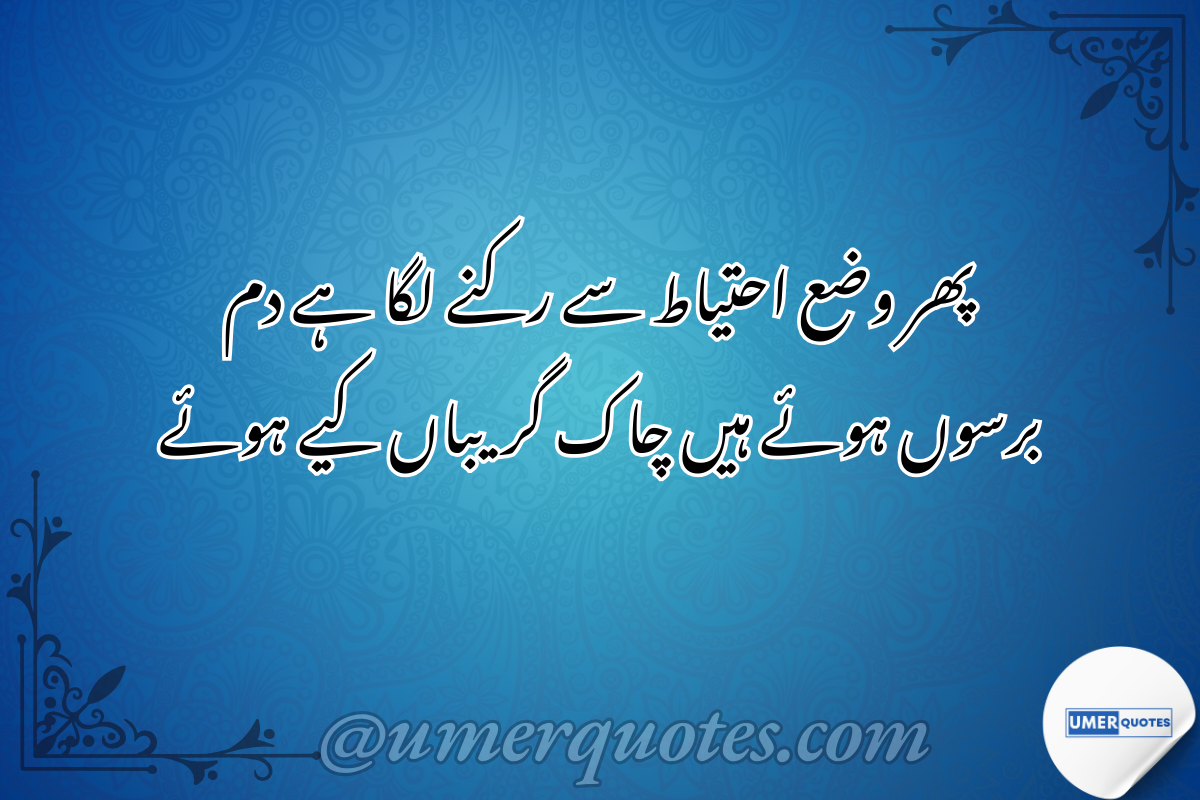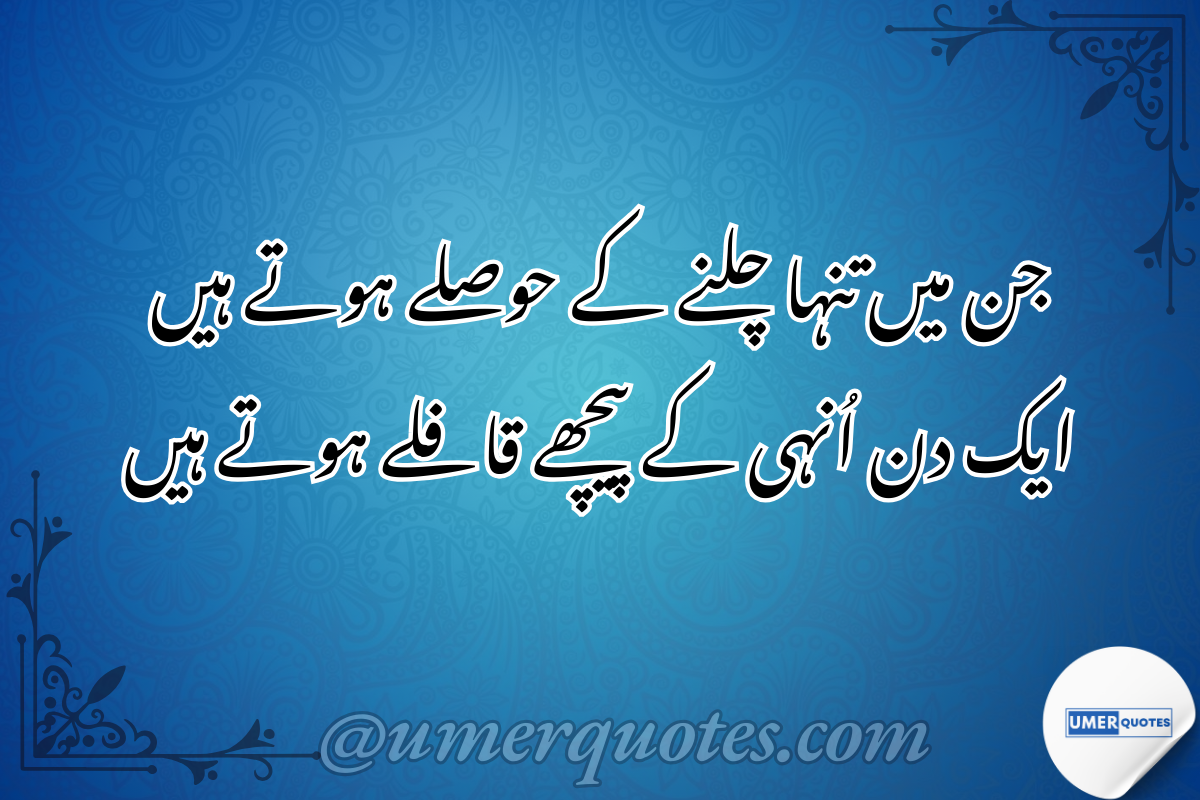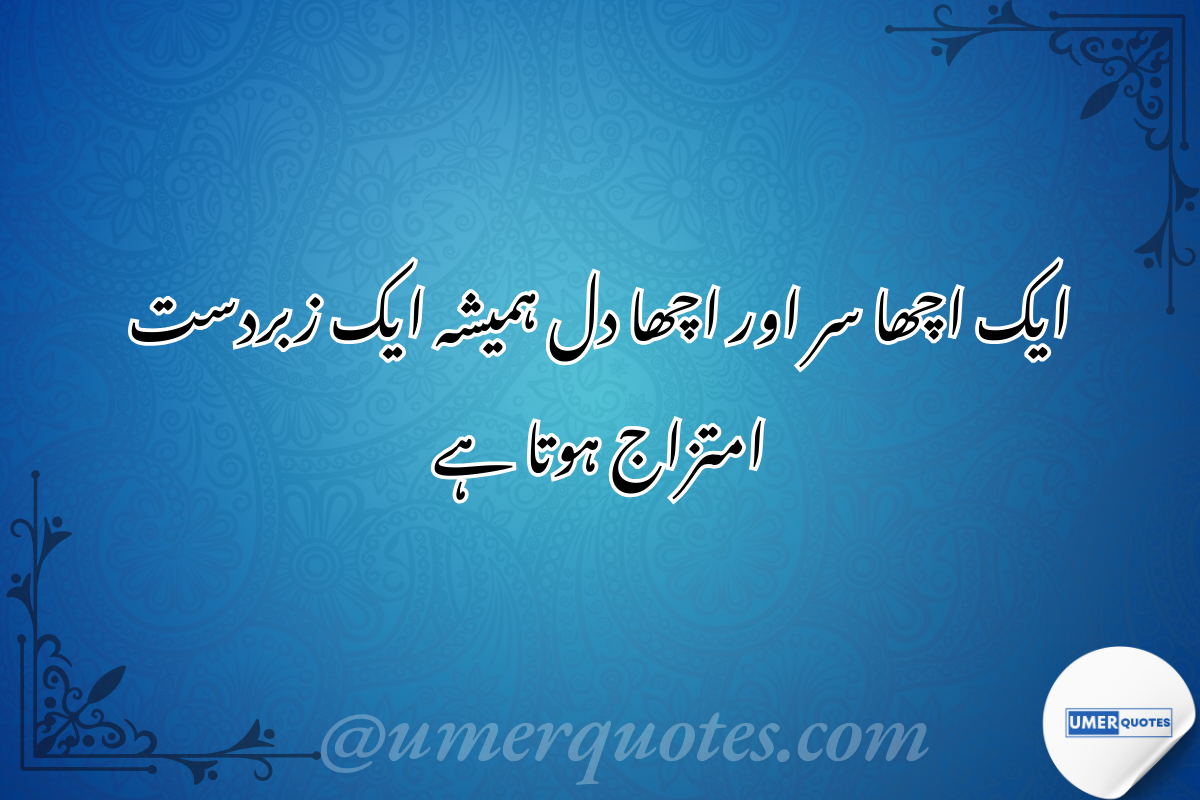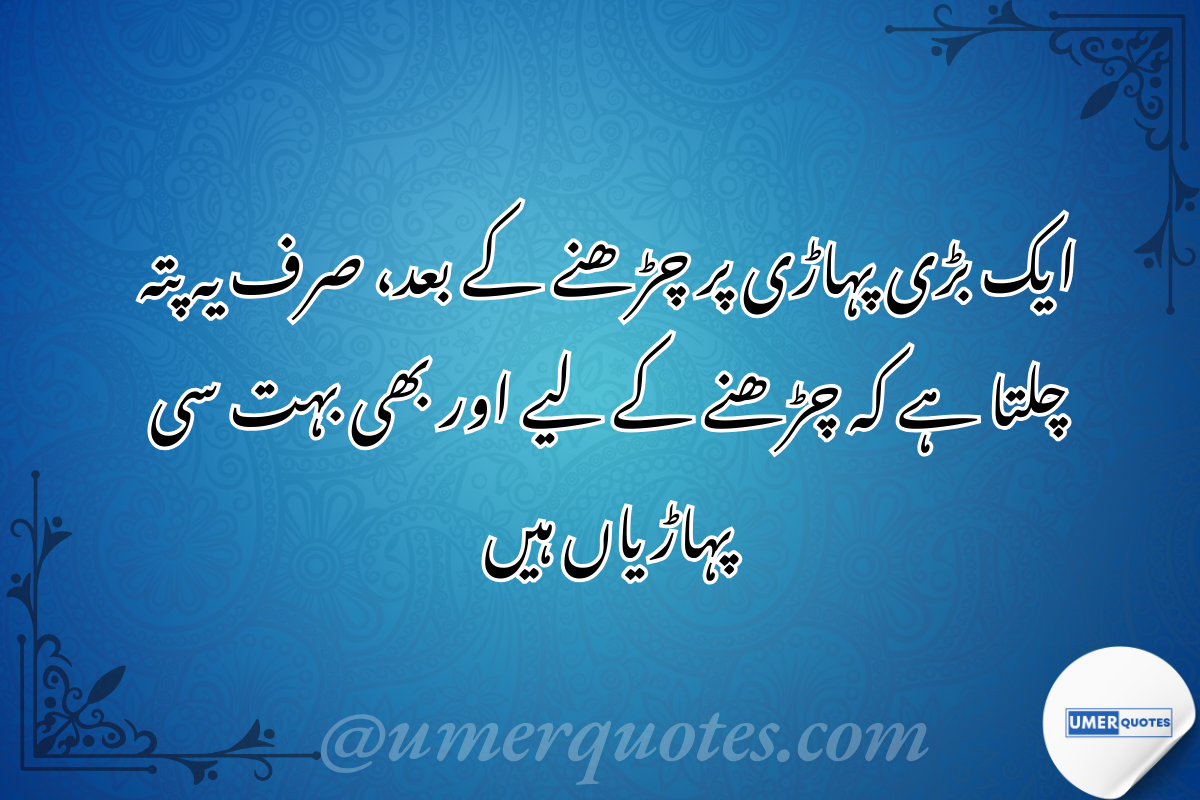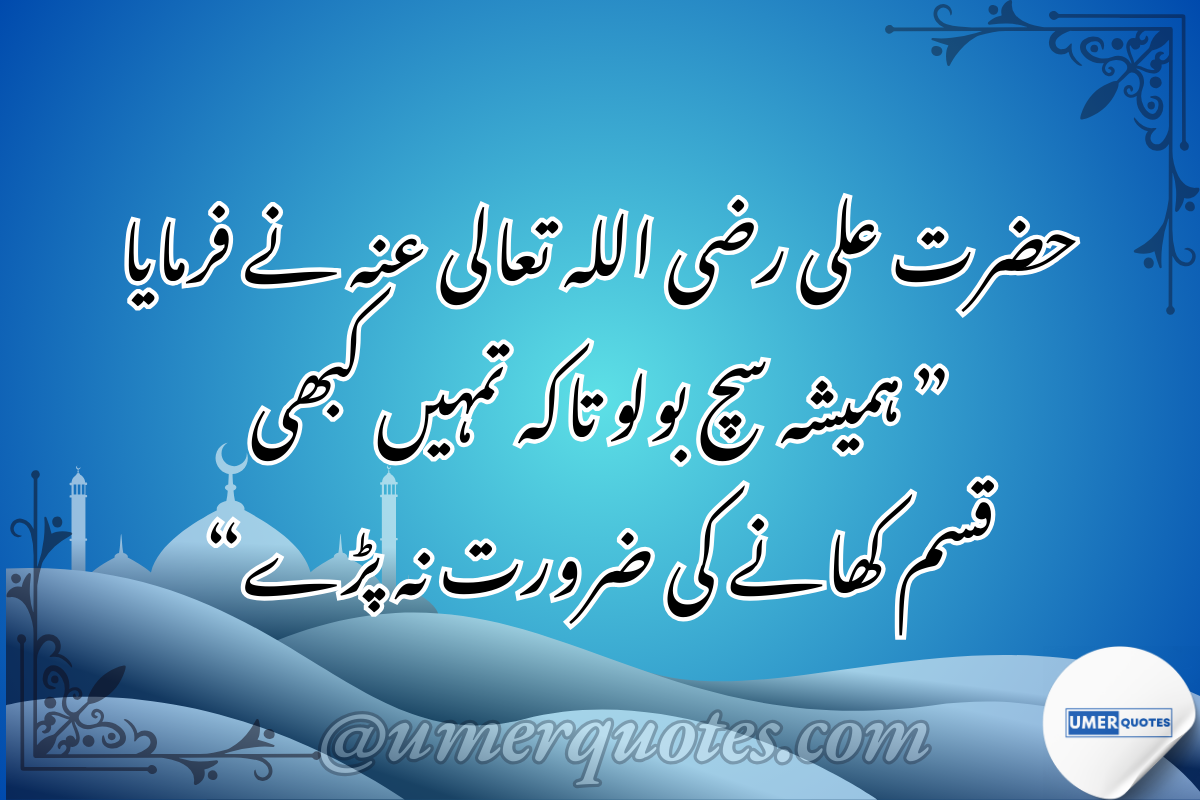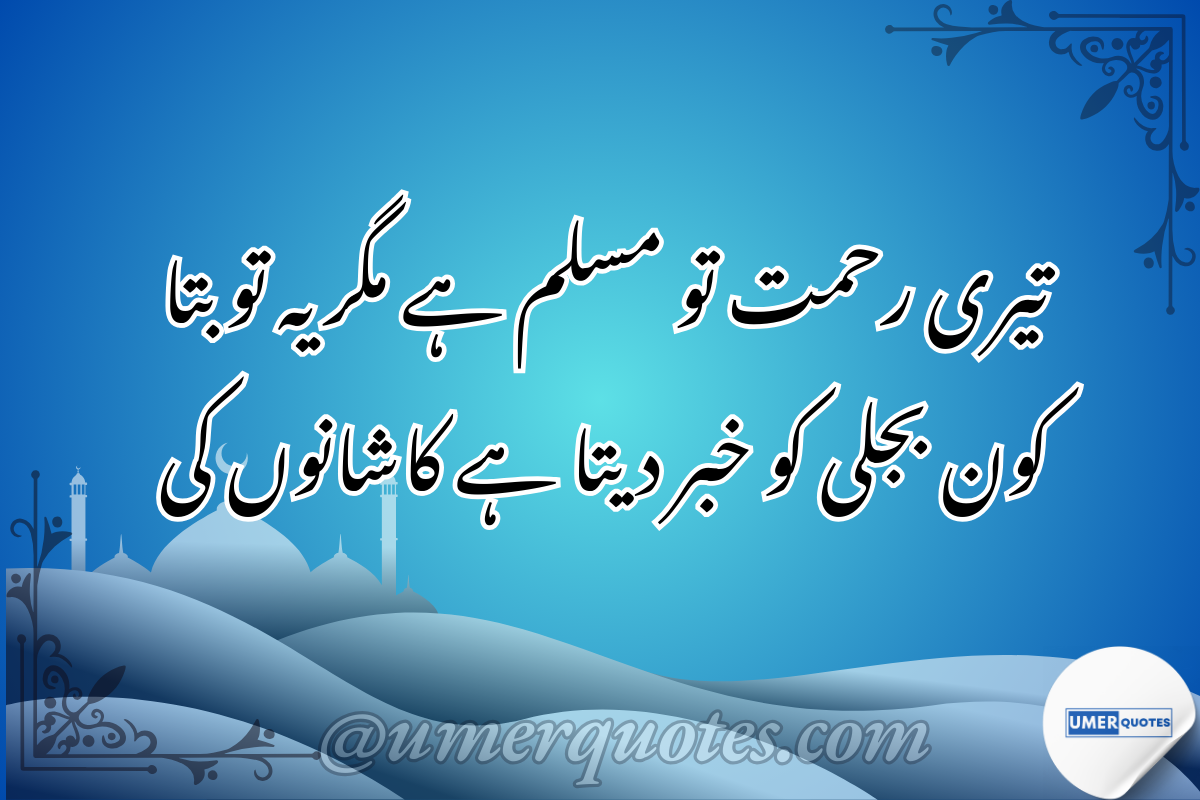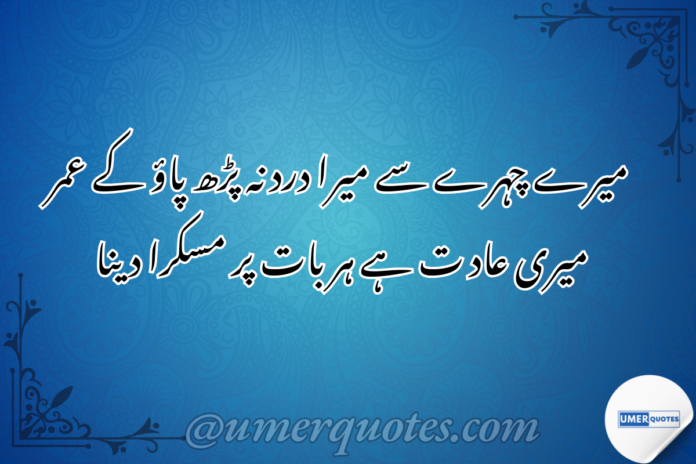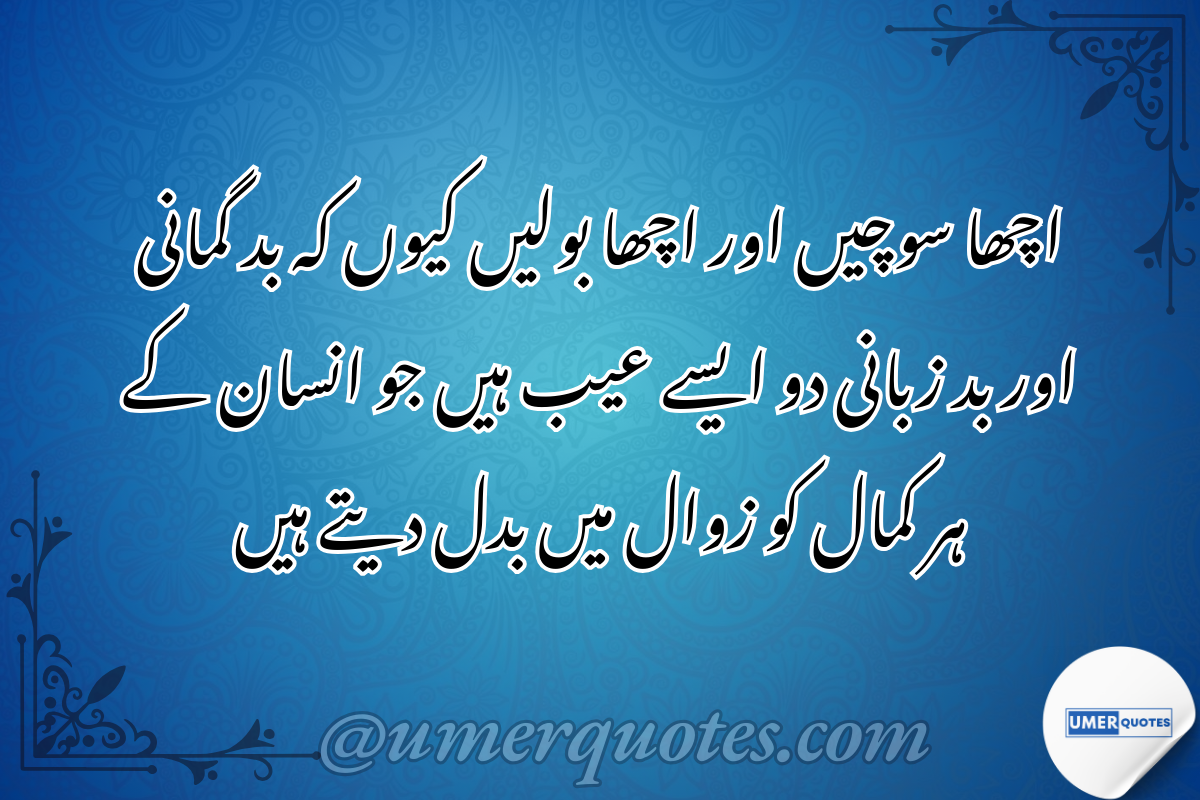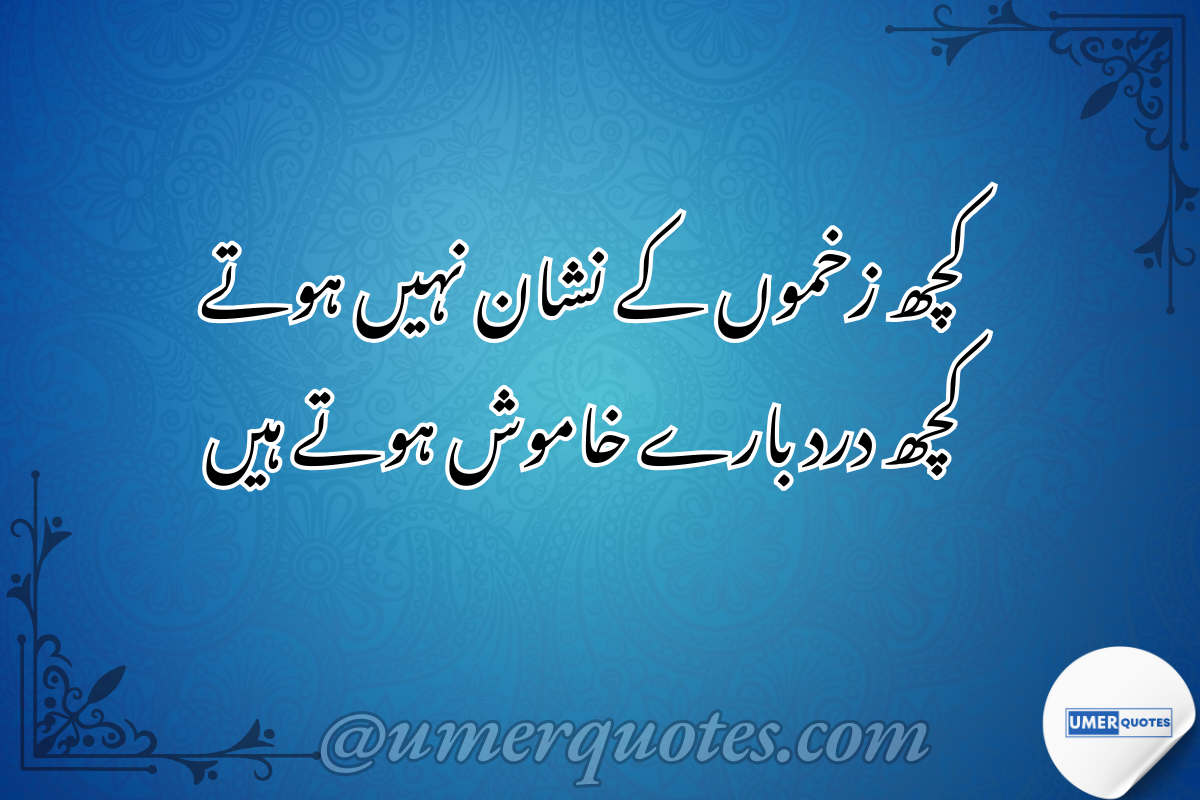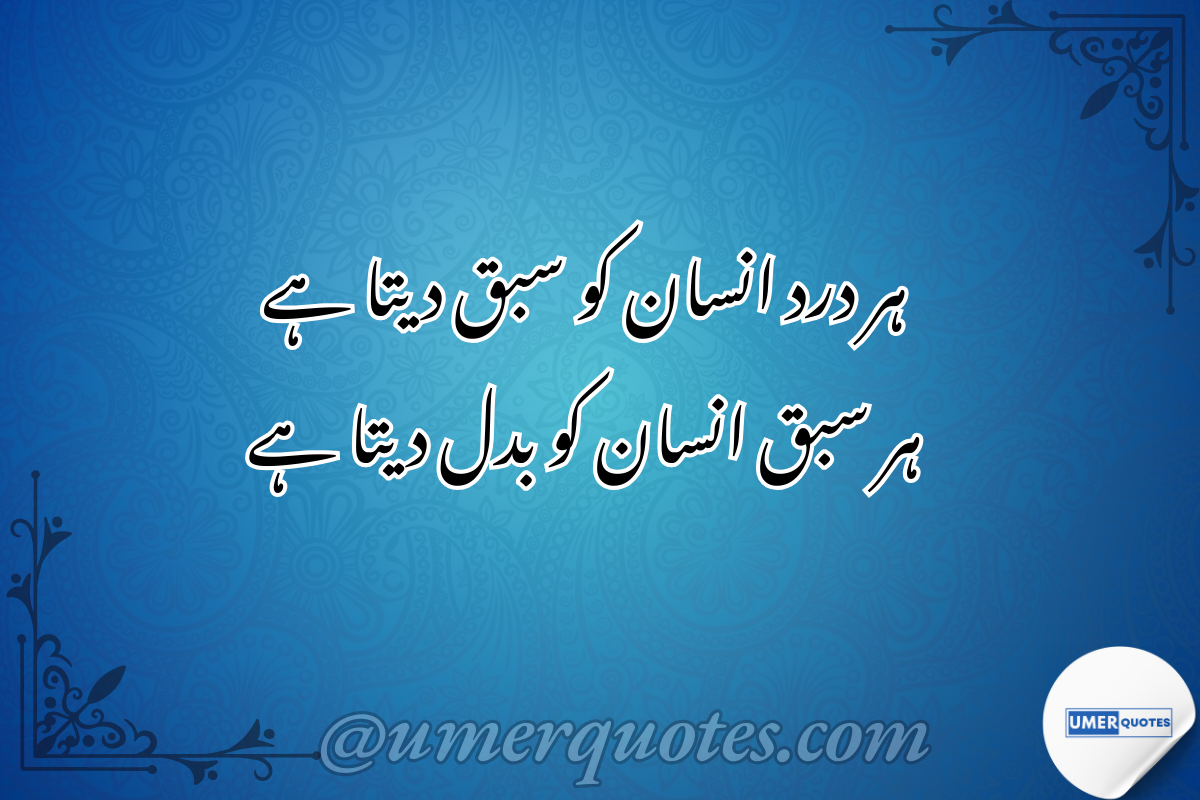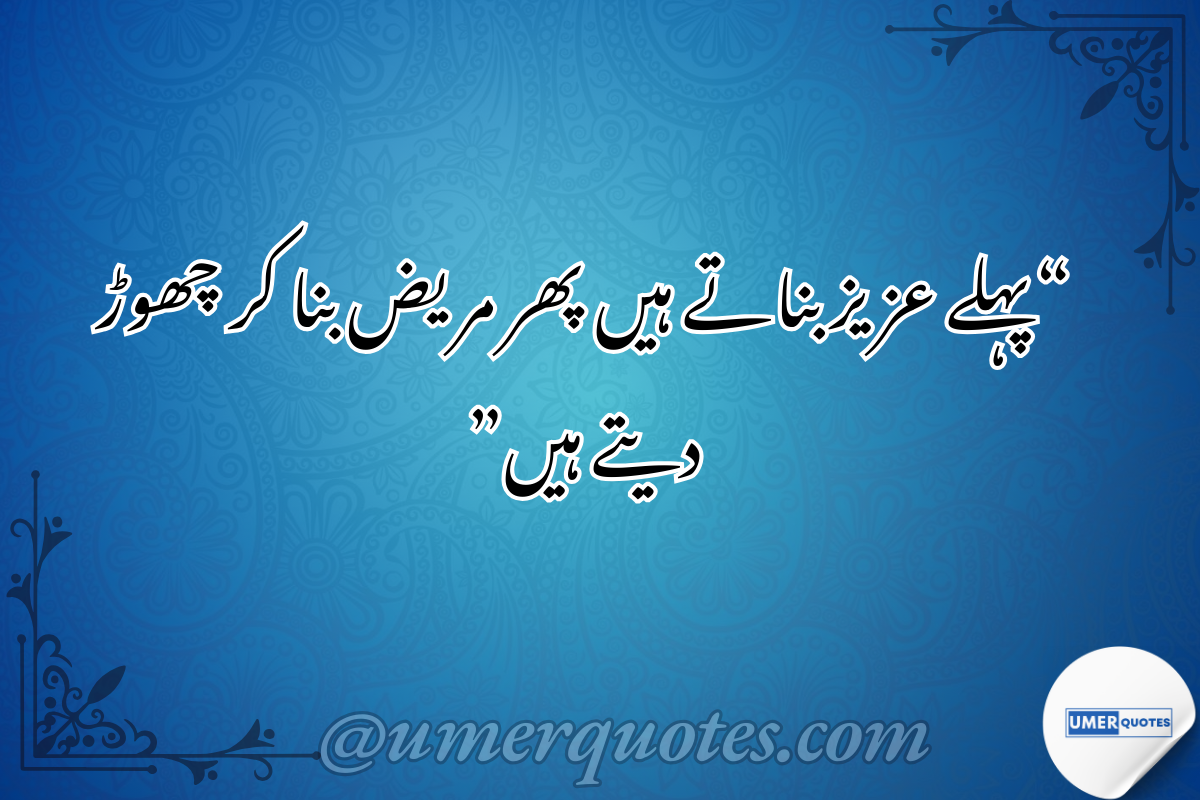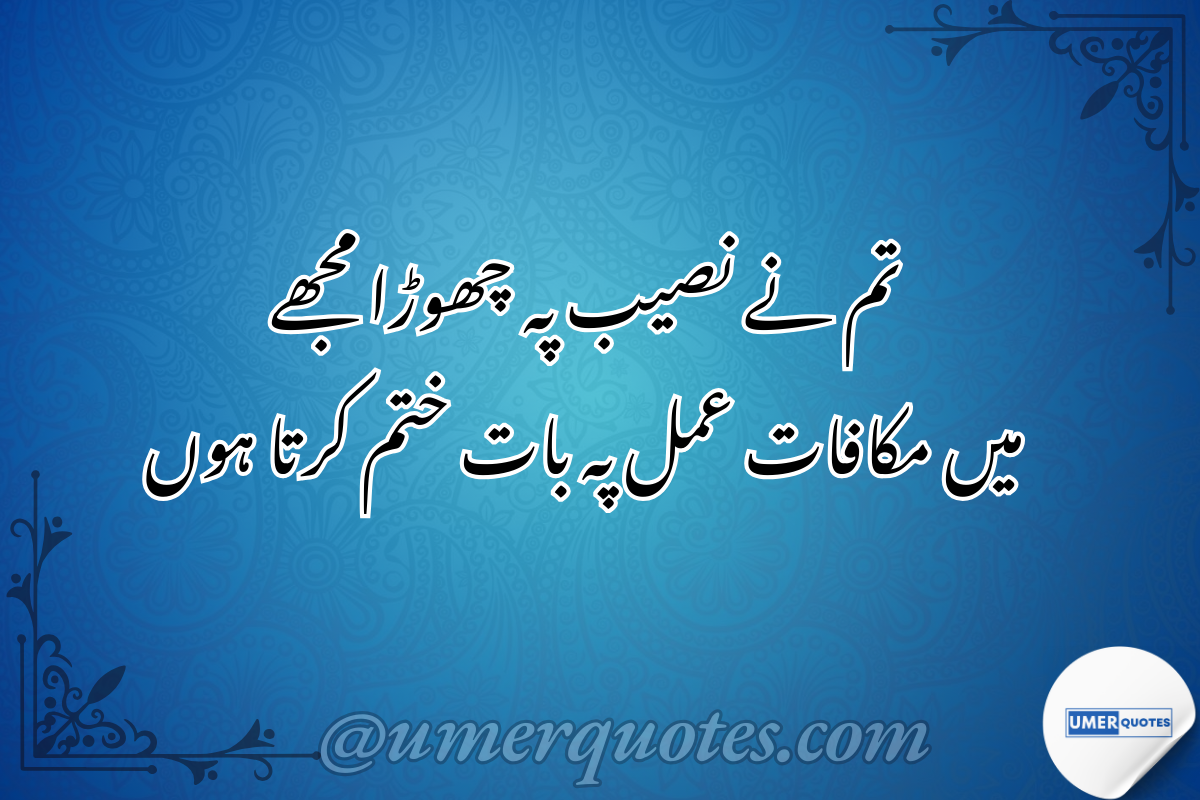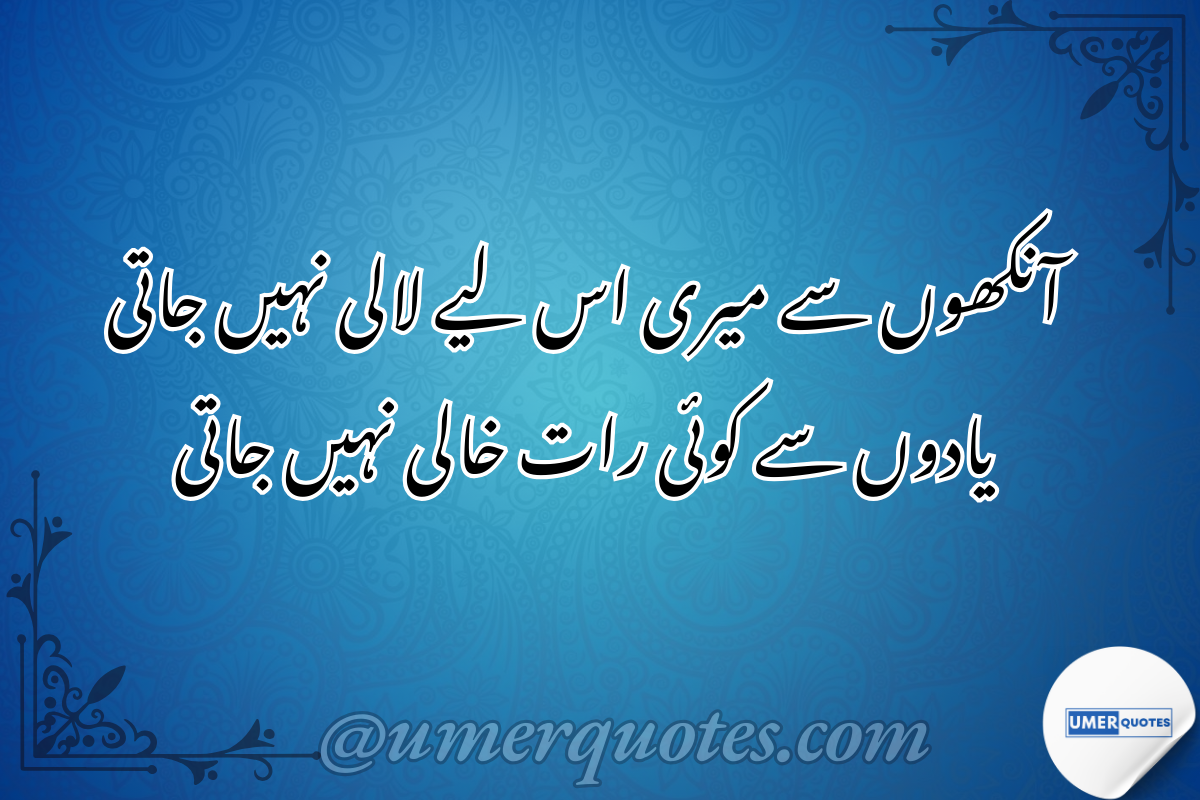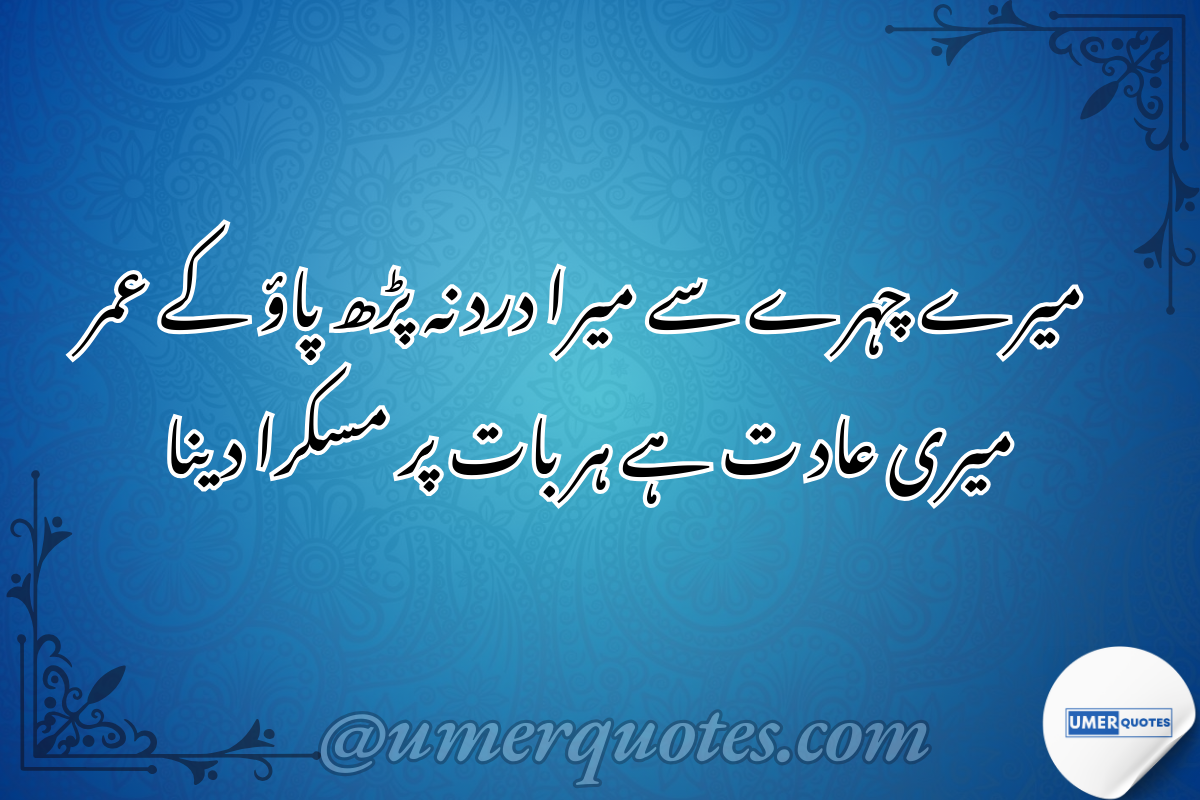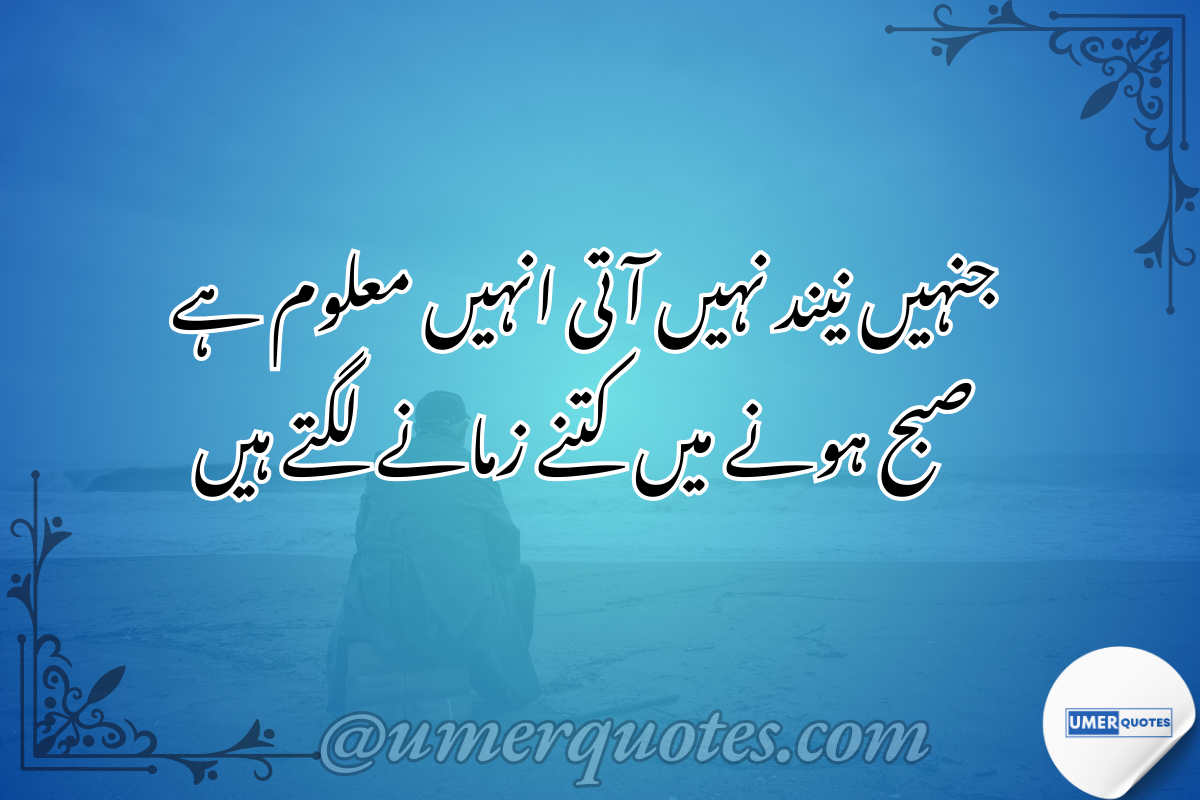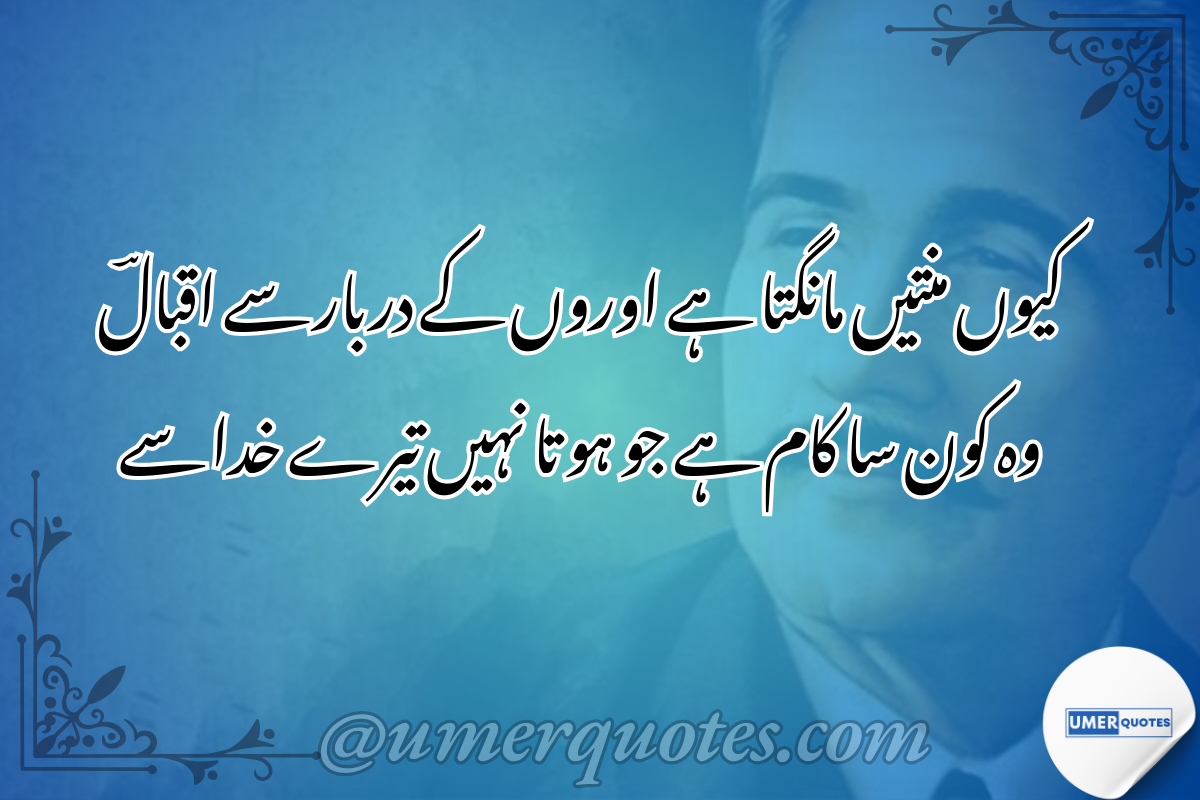
Poet: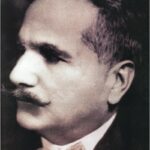
Allama Iqbal (1877-1938) was a great poet, philosopher and politician who highlighted thenational and religious consciousness among the Muslims of the subcontinent. His poetry is not only important from a literary point of view, but the message of independence, freedom and awareness of Muslims is hidden in his poems.Through his poetry, Iqbal invited Muslims to intellectual and spiritual growth and encouraged them to struggle for their rights. His famous works include Bang-e-Dara, Bal-e-Jabreel, and Zia-ud-Din, which not only gave a new dimension to Urdu literature but also left an impact of his thought throughout the world.
کیوں منتیں مانگتا ہے اوروں کے دربار سے اقبالؔ
وہ کون سا کام ہے جو ہو تا نہیں تیرے خدا سے
This poem describes the philosophy of Allama Iqbal, which emphasizes man’s self-reliance and trust in God. Iqbal says that a person does not need to go to the court of others or ask them for help, because his real helper and supporter is only God. They ask what is the work that cannot be done by God?
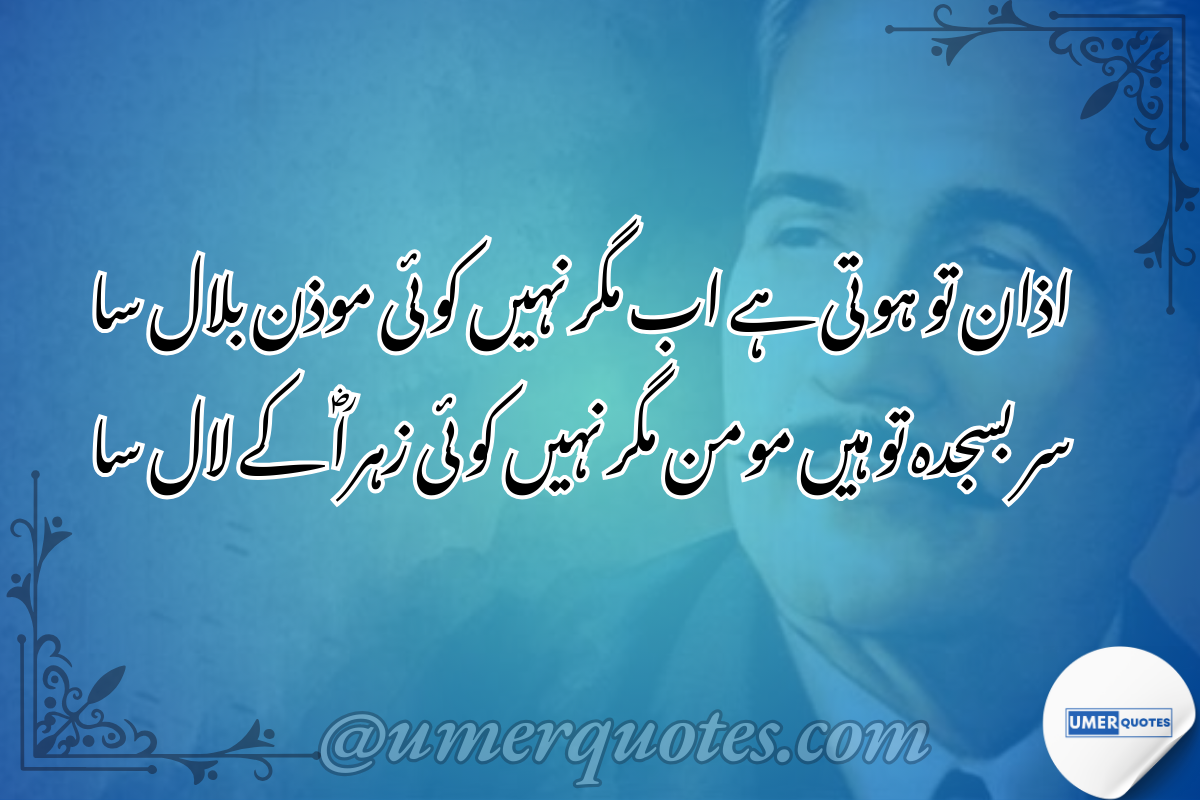
اذان تو ہو تی ہے اب مگر نہیں کو ئی موذن بلالؓ سا
سر بسجدہ تو ہیں مومن مگر نہیں کو ئی زہراؓ کے لال سا
This poem describes the decline of Muslims and their lack of exemplary characters. The poet says that in today’s era, the call to prayer is given, but that loud voice and intensity of faith, which was in Hazrat Bilal, is not seen anymore.
Azan is called now, but there is no muezzin like Hazrat Bilal (R.A):
- Adhan To Hoti Hai: The poet states that the outward aspect of worship, such as the Adhan, still exists. People give the call to worship, but it does not have the spiritual impact and sincerity that it had in the past.
- Hazrat Bilal (R.A Sa): Hazrat Bilal Habshi (R.A), who was the first muezzin of Islam, had sincerity in his call to prayer, strength of faith, and intensity of love for Rasulullah SAW.
- His adhan had the power to awaken hearts, which has been reduced in the present adhans.
There are believers who are prostrating, but not like Zahra (R.A):
- Sur Basajda Tu Hain Momin: Muslims pray, prostrate, i.e. are engaged in worship.
- But no Zahra’s Lal Sa: Hazrat Fatima Zahra’s Lal, that is, Imam Hasan and Imam Hussain, who were the supreme examples of worship and sacrifice. There was sincerity in his worship, love of God, and spirit of sacrifice for religion.
- The poets are telling that the spirit of sincerity and action that existed in the worship of Imam Hasan and Imam Hussain has not remained in the worship of the present Muslims.
Message:
This poem highlights the spiritual and practical decline of the Muslim Ummah.The external acts of worship are still going on, but they do not have the spiritual state and depth of action that was in the lives of the Companions and the Ahlul-Bayt.The poet emphasizes that mere outward actions are not enough; They must have sincerity, love, and the spirit of sacrifice.
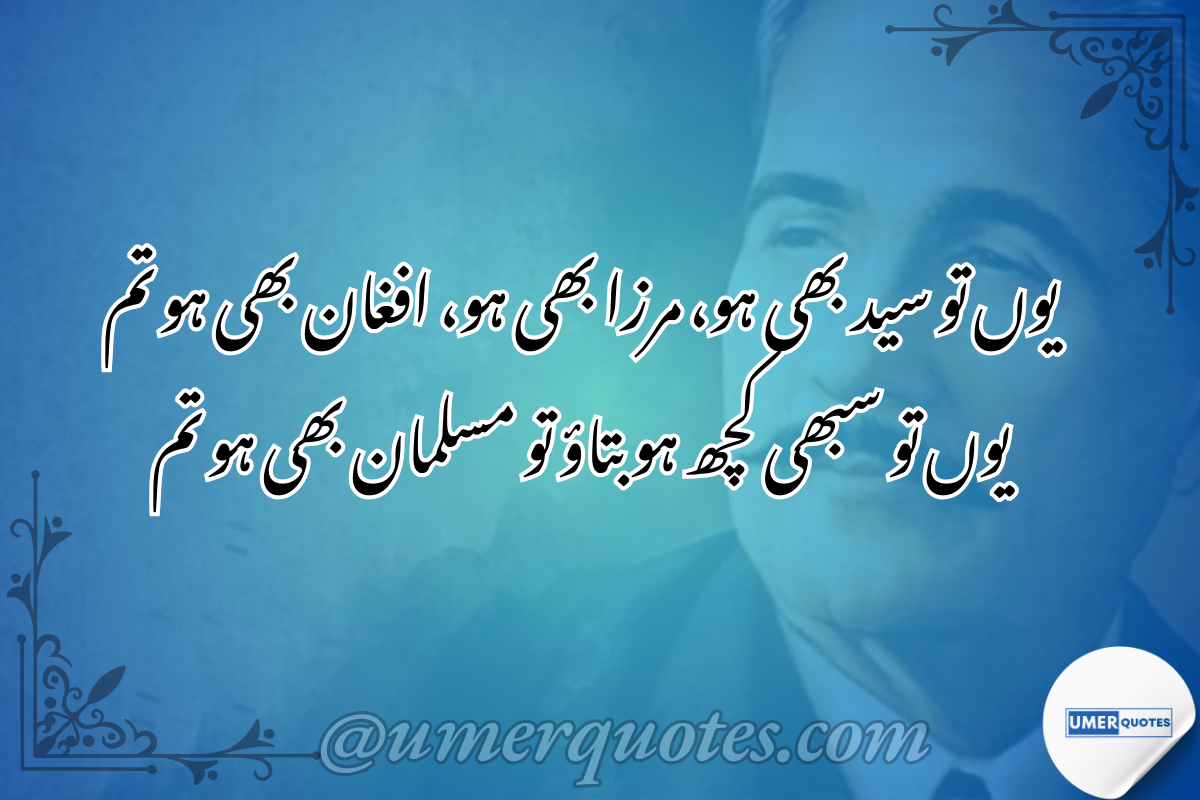
یوں تو سید بھی ہو، مرزا بھی ہو، افغان بھی ہو تم
یوں تو سبھی کچھ ہو بتاؤ تو مسلمان بھی ہو تم
This famous poem is by Allama Iqbal, which highlights the national identity and real purpose of Muslims. The poet says that whether you are Sayyid (descendant of Prophet), Mirza (descendant of Sultan), or Afghan (national identity), all these things can be part of your identity, but the real question is: Are you Muslim or not?
Even if you are a Sayyid, you are also a Mirza, you are also an Afghan:
- Syed: Those who are from the generation of Hazrat Ali, who have a special status and honor.
- Mirza: This word is generally used for people belonging to the Mughal dynasty.
- Afghan: People of Afghanistan or people of Afghan descent.
- In this stanza, Iqbal is mentioning different ethnic and tribal identities. The poets are suggesting that you belong to different nations, races or tribes, but beyond all these identities there must be something more.
If everything is like that, then you are also a Muslim:
- Muslims: The poets are reminding Muslims that your real identity is not in your ethnic or tribal identity, but in your faith and Islam.
- Iqbal is challenging Muslims here that if you are truly a Muslim, it should be recognized in your actions, thoughts, and morals, and not just in your ethnic or tribal identity.
- They want to say that the real criteria of being a Muslim are faith, spirituality, and striving for the pleasure of Allah, which transcends any ethnic or geographical boundaries.
Message:
Through this poem, Iqbal draws the Muslims towards their real identity i.e. the principles of Islam. They want to explain that the real identity of a human being is not by his race or nationality, but by his faith, character and deeds. To be a Muslim is not simply to belong to a race or nation, but to live its reality through our actions and faith.
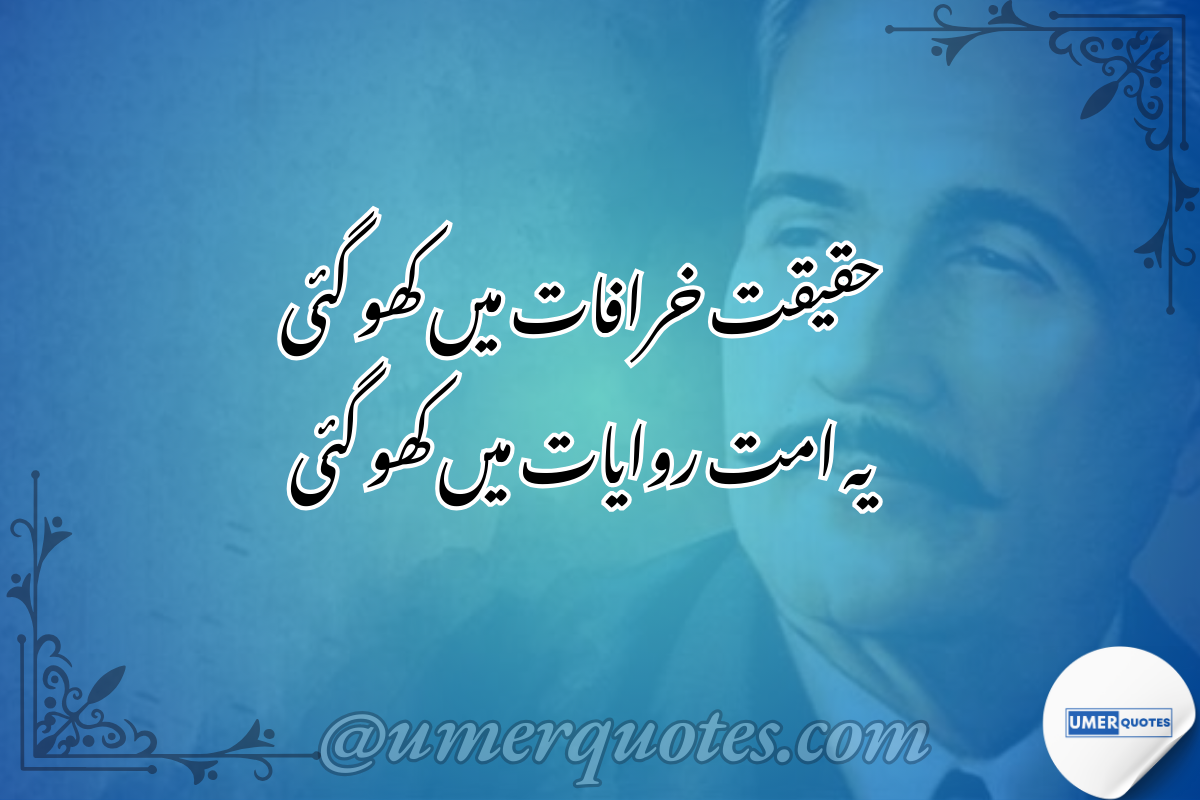
حقیقت خرافات میں کھو گئی
یہ امت روایات میں کھو گئی
These poems are another deep and powerful message of Allama Iqbal’s reformist poetry, in which he criticizes the current state of the Muslim Ummah. Iqbal portrays the Muslims as entangled in mere traditions and myths, away from their real reality and purpose. Let us explain this verse in detail:
Reality is lost in myth:
- Reality: Truth, reality, and that which is original and fundamental, namely faith, knowledge, and the purpose of life.
- Myths: Those frivolities, delusions, or unimportant things in which man wastes his energies and time.
- Iqbal is telling here that the Muslim Ummah has left its original reality (which is faith, action and spirituality) and has started spending time in mere myths and unnecessary things.
This Ummah got lost in traditions:
- Traditions: Habits, rituals, and ancient practices that are passed down through generations over time.
- Iqbal is describing the condition of the Muslim Ummah here that this Ummah has become so much trapped in its old traditions that it has become alienated from the real purpose and truth.
- Instead of understanding the real spirit of Islam, the nation has made its superficial traditions and rituals the goal of its life.
Message:
In this poem, Iqbal wants to make the Muslim Ummah realize that if they get lost in their traditions and myths, they will be far away from their real reality and purpose. Running behind traditions and myths, makes a person oblivious to his true spirituality, knowledge, and purpose in life. The ummah needs to strive for its true identity, i.e. faith, knowledge and the pleasure of Allah, and not merely follow superficial customs.



